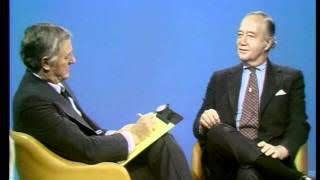 |
| Source:Invest Bliguru- a House Agriculture Committee hearing in 1980. |
Source:The FreeState
“The Great Depression of the 1930s changed the public philosophy regarding the appropriate role of government in American life. Before the Depression, government was not assumed to have special responsibilities for individual or business welfare. The severity of the economic tragedy of the 1930s resulted in a dramatic change in public attitudes.
Many believed the Depression represented a “failure of capitalism.” Because of this alleged failure, government has ever since been expanding its power and the scope of its control. Government growth has resulted in waste, inefficiency, and a loss of personal freedom. Intended to serve the interests of the people, many governmental programs have been revealed to serve primarily the interests of the bureaucrats.
Many government programs serve at cross purposes. For example, different agencies attempt, on the one hand, to discourage use of tobacco as potentially dangerous to good health and, on the other hand, to encourage production of tobacco through subsidies to tobacco farmers. The list of government inconsistencies and inefficiencies goes on and on. Dr. Friedman, however, says that there is reason for optimism. Today, he notes, the public is better informed about these matters and is increasingly willing to take a stand against further unnecessary expansion of government services. He suggests the most fruitful approach is to remove discretionary budget power from the government. Friedman favors passage of a Constitutional amendment limiting the government’s budget and forcing government to work within that budget.
But this is only the first step. As Dr. Friedman points out, “What we need is widespread public recognition that the central government should be limited to its basic functions: defending the nation against foreign enemies, preserving order at home, and mediating our disputes. We must come to recognize that voluntary cooperation through the market and in other ways is a far better way to solve our problems than turning them over to the government.”
From Invest Bliguru
If you look at the lobbying industry in America and why it’s so large and why they’ve become so powerful and have dominated Washington politics, preventing both good and bad things from happening and becoming law, it’s because as the famous bank robber Billy The Kid once said to why he robs banks, he said,: “Because that’s where the money is.”
Why do lobbyists lobby Washington, because that’s where the power is. We now have a Federal budget of 3.7T$ and now have a public service of eight-million workers including Congress and their staffs. So of course they are going to lobby the Federal Government so much to represent their interests, because that’s where the power is.
If you look at the Washington skyline, especially downtown Washington, you’ll see a big beautiful city with lots of big beautiful buildings that take up a lot of space. Most of those buildings paid for by Federal tax revenue and most of those buildings are Federal property to house the thousands of Federal agency’s we have and thousands of Federal workers who work there. Do we need Federal campaign and lobbying reform, of course we do. But campaign finance and lobbying reform in America is not a silver bullet to fix the corruption in our Federal Government.
But as long as the Federal Government is as big and powerful as it is, lobbying will always be an issue in the Federal Government. Members of Congress will always be looking for the easiest way to get reelected and the fastest way to move up in the House and Senate and be planning their post Congressional careers. Well, the few members who actually leave Congress will be doing that. The others will concentrate on the easiest way to get reelected, move up in Leadership, perhaps land a sweet cabinet position or look to run for President themselves.
If you want less lobbying and corruption in Washington, get the government power out of Washington and send it back to the states, localities, and the people themselves. As well as full-disclosure on all Federal lobbying and political activities in America.


























